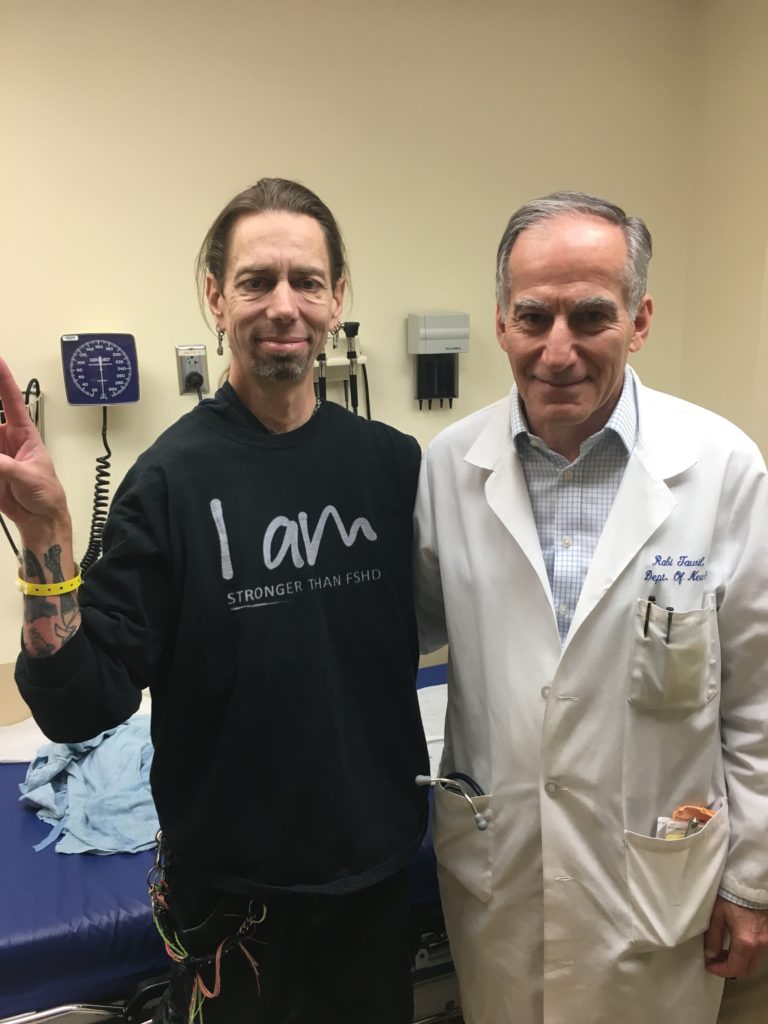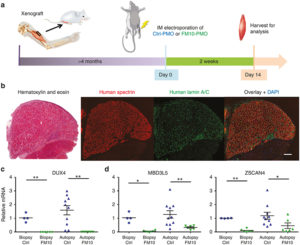
To crack the code of FSHD, patients are absolutely essential
All of the breakthroughs—the discovery of the genetic causes, understanding why some patients vary so greatly in the severity of their symptoms, teasing out the biochemical pathways that could point to future treatments—were made because patients stepped up to the plate.
Too often, we hear patients say they’ll volunteer when there’s a treatment. But we will never get to a treatment unless patients participate in fundamental research now. FSHD is uniquely human, so no laboratory mouse can ever fully model the disease. The genetic “package” that causes FSHD is found only in people. We owe an enormous debt to the patients who give DNA samples. Who submit to long interviews and exhausting physical tests. Allow a surgeon to cut out a small muscle sample. Who fight claustrophobia to lie in the narrow bore of an MRI machine.
Equally important are patients’ family members, both affected and unaffected, who provide the best experimental controls because of their shared genetic and environmental backgrounds. A parent or sibling who has very mild symptoms may hold the key to understanding the factors that protect against the full-blown development of FSHD symptoms in a more severely affected family member.
We are more hopeful today than ever before that a treatment is within sight. We cannot guarantee when that treatment will arrive, but here’s one thing we guarantee: If you volunteer for research, your participation will without question help move us a step closer to that day.
Scientific Overview of FSHD
Read the latest on wikipedia
Glossary of Scientific Terms
Q&A with Dr. Rabi Tawil, Part 2
This is a continuation of our Q&A session with Rabi Tawil, MD, co-director of the MDA Neuromuscular Disease Clinic at the University of Rochester, New York, and lead author of… Read More »
Antisense technology muzzles DUX4
The cause of facioscapulohumeral muscular dystrophy (FSHD) is thought to center on DUX4, a gene that normally is silent in adult skeletal muscle. When DUX4 gets “expressed,” as happens in… Read More »
San Diego members get a stem cell tutorial
By Amy Bekier, San Diego, California On July 30, 2016, twenty-five FSHD patients, family and scientists assembled at Genea Biocells in La Jolla, California, to hear presentations by senior scientists… Read More »
FSH Society commits over $1.38 million to research in 2016
Grants approved from February 2016 cycle set new record. The FSH Society has committed $648,774 in funding to five research projects that aim to break new ground in the search… Read More »




